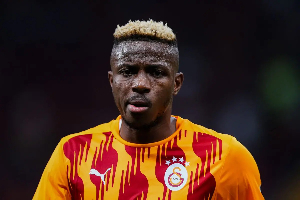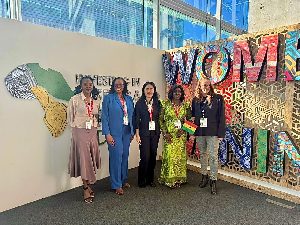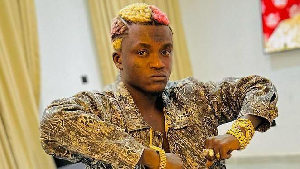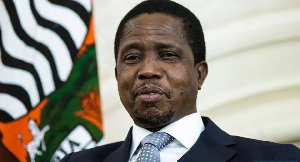A book about the life and works of Prof K.A. Busia, Ghana’s Prime Minister in the Second Republic was on Wednesday, 31 July 2019 launched in Accra at a ceremony attended by Vice-President Dr Mahamudu Bawumia and key personalities of the governing New Patriotic Party (NPP).
The book is titled: "K. A. Busia: A Symbol of Democracy".
Speaking at the ceremony, Dr Bawumia said although Prof Busia spent only 27 months in office, he transformed Ghana significantly based on his rural industrialisation policy. Additionally, the Vice-President said Dr Busia’s government built roads, health facilities, and schools as well as extended pipe-borne water to various parts of the country.
He added that Prof Busia’s rural development strategy was the beginning of the Danquah-Dombo-Busia tradition’s inclusive development efforts, “a mantle subsequently carried by ex-President Kufuor, a direct mentee of Prof. Busia. President Kufuor's social interventions included the NHIS, Capitation Grant, NYEP, LEAP, Metro Mass bus system, etc”.
“Busia’s vision of rural industrialisation and inclusive development is being pursued vigorously under H.E Akufo-Addo's administration through the ‘One District One Factory’ initiative, the ‘One Village One Dam’ programme, ‘Planting for Food and Jobs,’ Free SHS, NABCO and many other such initiatives.”
About Prof K.A Busia
Kofi Abrefa Busia was the Prime Minister of Ghana from 1969 to 1972. As a nationalist leader and Prime Minister, he helped to restore civilian government to the country following military rule.
He served as a district commissioner from 1942 to 1949, and was appointed the first lecturer in African Studies. He became the first African to occupy a Chair at the University College of the Gold Coast (now the University of Ghana). In 1951 he was elected by the Ashanti Confederacy to the Legislative Council. In 1952, he was Leader of Ghana Congress Party, which later merged with the other opposition parties to form the United Party (UP).
As the leader of the opposition against Kwame Nkrumah, he fled the country on the grounds that his life was under threat. In 1959 Busia became a Professor of Sociology and Culture of Africa at the University of Leiden near the Hague, Netherlands. From 1962 until 1969, he was a Fellow of St Antony's College, Oxford.
He returned to Ghana in March 1966 after Nkrumah's government was overthrown by the military to serve on the National Liberation Council of General Joseph Ankrah, the military head of state; and was appointed as the Chairman of the National Advisory Committee of the NLC. In 1967/68, he served as the Chairman of the Centre for Civic Education. He used this opportunity and sold himself as the next Leader. He also was a Member of the Constitutional Review Committee. When the NLC lifted the ban on politics, Busia, together with friends in the defunct UP formed the Progress Party (PP).
In 1969, the PP won the parliamentary elections with 104 of the 105 seats contested. This paved the way for him to become the next Prime Minister. Busia continued with NLC's anti-Nkrumaist stance and adopted a liberalised economic system. There was a mass deportation of half a million Nigerian citizens from Ghana, and a 44 per cent devaluation of the cedi in 1971, which met with a lot of resistance from the public.
While he was in Britain for a medical check-up, the army under Colonel Ignatius Kutu Acheampong overthrew his government on 13 January 1972. Busia remained in exile in England and returned to Oxford University, where he died from a heart attack in August 1978.
Along with J. B. Danquah and S. D. Dombo, Busia's name is associated with Ghana's political right. The New Patriotic Party has claimed the Danquah-Busia-Dombo mantle in the Fourth Republic.
General News of Thursday, 1 August 2019
Source: classfmonline.com













